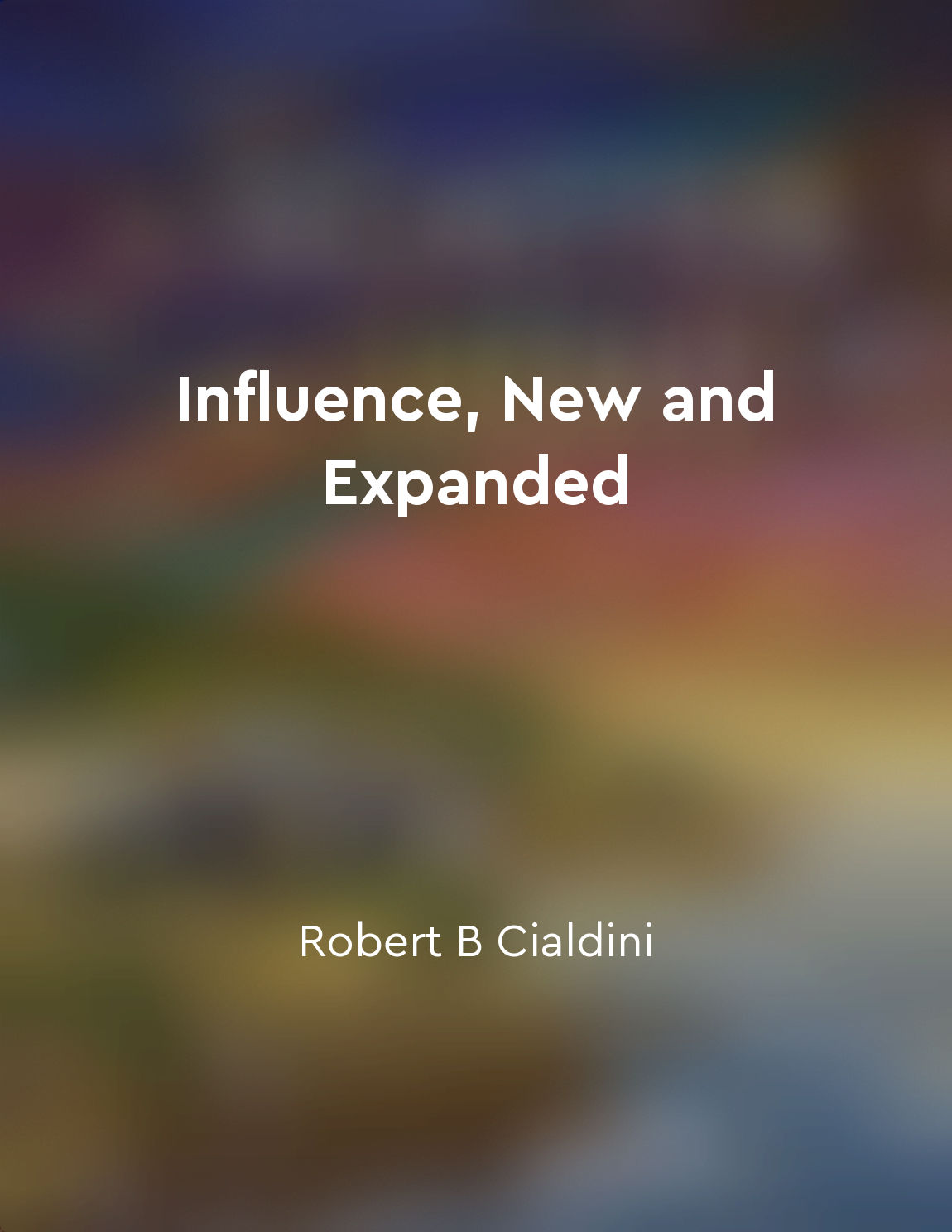Triggering emotions can lead to action from "summary" of Influence, New and Expanded by Robert B Cialdini
One of the key factors that can drive people to take action is the triggering of powerful emotions. When individuals are emotionally stirred up, they are more likely to act in ways that may not be rational or carefully considered. This phenomenon is based on the principle that emotions can override logic and reason, leading individuals to make decisions based on their feelings rather than a logical evaluation of the situation.
Emotions have a strong influence on our behavior because they can tap into our instincts and primal drives. When we experience strong emotions such as fear, anger, or excitement, our bodies go into a state of heightened arousal, preparing us for fight or flight. In this state, we are more likely to act impulsively and reactively, rather than thoughtfully and strategically.
Marketers and advertisers have long understood the power of emotions in driving consumer behavior. By creating ads that evoke strong emotions such as happiness, nostalgia, or fear, they can tap into consumers' subconscious desires and motivations, leading them to make purchases or take actions they may not have otherwise considered. This is why emotional appeals are so commonly used in advertising, as they have been shown to be highly effective in influencing consumer behavior.
In addition to marketing and advertising, politicians and leaders also use emotional appeals to motivate people to support their causes or take action on important issues. By tapping into people's emotions and stirring up feelings of outrage, patriotism, or solidarity, leaders can mobilize their followers to take action, whether it be voting, protesting, or donating to a cause.The concept that triggering emotions can lead to action is a powerful tool that can be used to influence and persuade others. By understanding how emotions can drive behavior, individuals and organizations can harness this power to achieve their goals and objectives, whether it be selling a product, gaining support for a cause, or mobilizing a group of people to take action. Emotional appeals have been shown to be highly effective in driving behavior because they tap into our primal instincts and motivations, leading us to act in ways that we may not have otherwise considered.

Open in app
The road to your goals is in your pocket! Download the Oter App to continue reading your Microbooks from anywhere, anytime.


